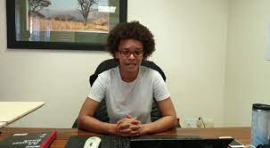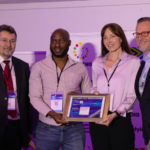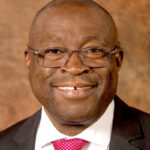With the imminent threat of climate change, South Africa has laid the foundation to enable climate education in schools but there are areas of improvement that have been identified.
“Climate education in South Africa has a lot of structures in place. The Department of Basic Education and its partners have done a tremendous amount of work in laying the foundation to enable climate education in South Africa,” Wildlife and Environment Society of South Africa (WESSA) Head of Programme and Projects, Cindy-Lee Cloete, said on Friday.
She was addressing a webinar on children’s involvement in climate change action.
Cloete said some of the areas of improvement identified include the need to change the approach to education.
“If we are going to completely immerse ourselves in campaigning and fighting for our communities against the impacts of climate change, we have to take a different approach to education.
“We have to look at how we bring children’s voices and the youth into spaces that do not link to tokenism, and engage them in a meaningful way so that their voices are heard,” Cloete said.
She applauded the Southern African Development Community (SADC) for recently launching the Strategic Framework on Education for Sustainable Development (ESD), which includes environmental education.
SADC — which includes Angola, Botswana, Comoros, Democratic Republic of Congo, Eswatini, Lesotho, Madagascar, Malawi, Mauritius, Mozambique, Namibia, Seychelles, South Africa, United Republic Tanzania, Zambia and Zimbabwe — has agreed to imbed the framework into the education journey of schoolchildren.
Cloete said the country’s education should look at advocacy and action, as these areas will matter for the youth as they transition into a just and sustainable world.
According to United Nations Educational, Scientific and Cultural Organisation (UNESCO) data, only 53% of countries had climate change education in their national school curricula, and 70% of learners could not explain climate change.
UNESCO says part of the problem is that globally, school education is done through the passive transfer of knowledge.
However, Cloete said, education needs to “adopt active methods that generate advocacy and agency”.
“For climate education to be effective in the country, we need to look at how we [develop] agency and empathy in the learning journey, especially through climate education.
“We also need to look at environmental justice, social justice and economic justice, as a focus for climate education and inclusion.
“No one needs to be left behind. Climate education needs to be a life long journey for children in Early Childhood Development Centres (ECDs), all the way to the elderly. We need to include them to protect the ecosystem,” Cloete said.
WESSA works with about 700 schools in South Africa to bring messages on climate change both in and out the classroom.
“We want to create a movement of people caring for themselves and the Earth, and we do that through citizen action, which includes messaging and campaigning,” Cloete said.
Department of Basic Education Director for Social Cohesion and Equity in Education, Likho Bottoman, said climate change issues have been dealt with in the curriculum, although the department has received criticism on teacher development as in some instances, teaches are not adequately prepared.
“At times, teachers do not have teaching aids and content gaps have been identified, as teachers do not have teaching aids to deliver the content to learners.
“We have now have developed Life Orientation textbooks that have a section dedicated to climate change, and we hope these textbooks will be finalised by the year 2023 so that schools can use them.
“Going forward, as the department, we are going to have to look at ways to support the curriculum, such as developing manuals or scripted lesson plans that are aligned to the Life Orientation textbook and the National Curriculum and Assessment Policy Statement (CAPS) document,” Bottoman said.
He commended the work that has been done by partners that have collaborated with the department on climate education.
“We are working with our partners in civil society, business and other government entities on climate education because we realise that if we miss the opportunity of imparting climate change knowledge at school level, we might just be adding to the problem of climate change.
“We are far behind where we are supposed to be, in far as response mechanisms to climate change are concerned. We need to catch up, be more efficient, effective and economical about the responses and mechanism to respond to the issues of climate change. We require all stakeholders and partners involved to share resources in this space,” Bottoman said.












